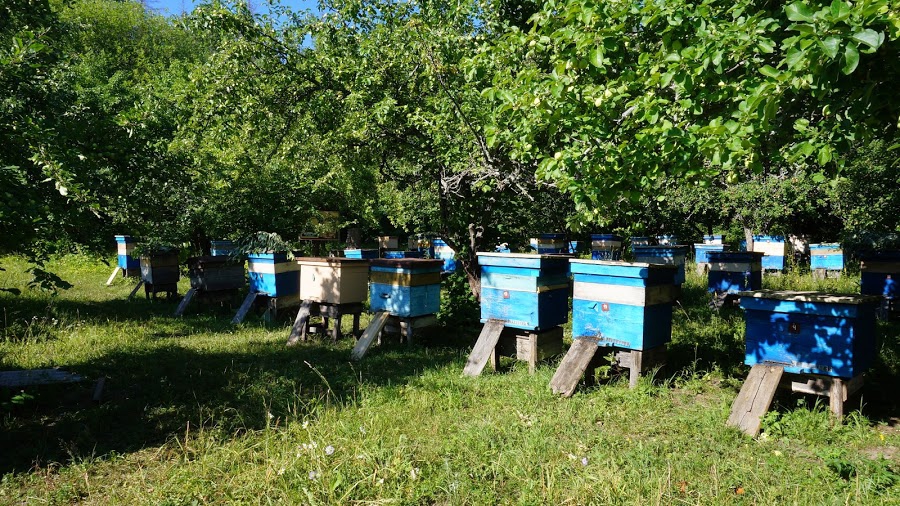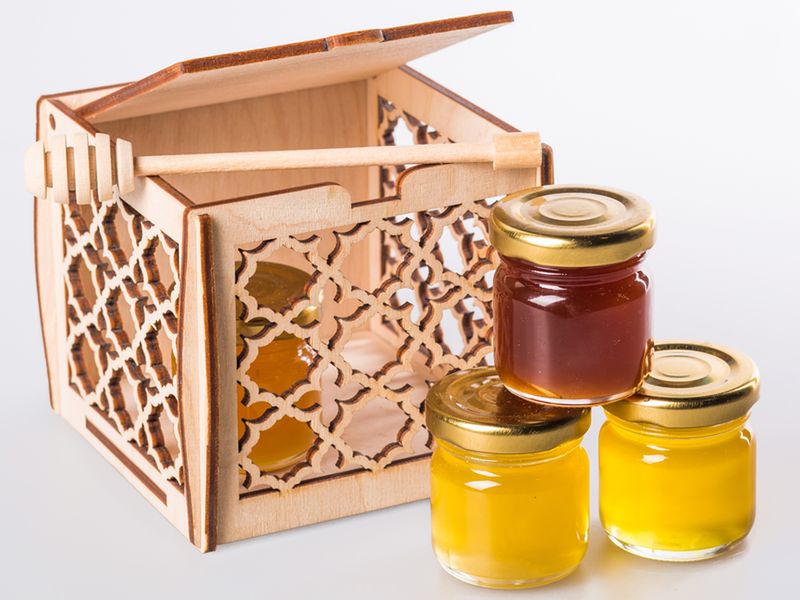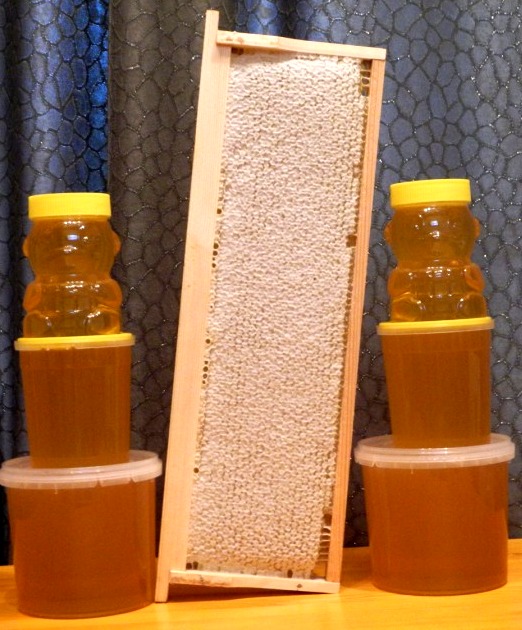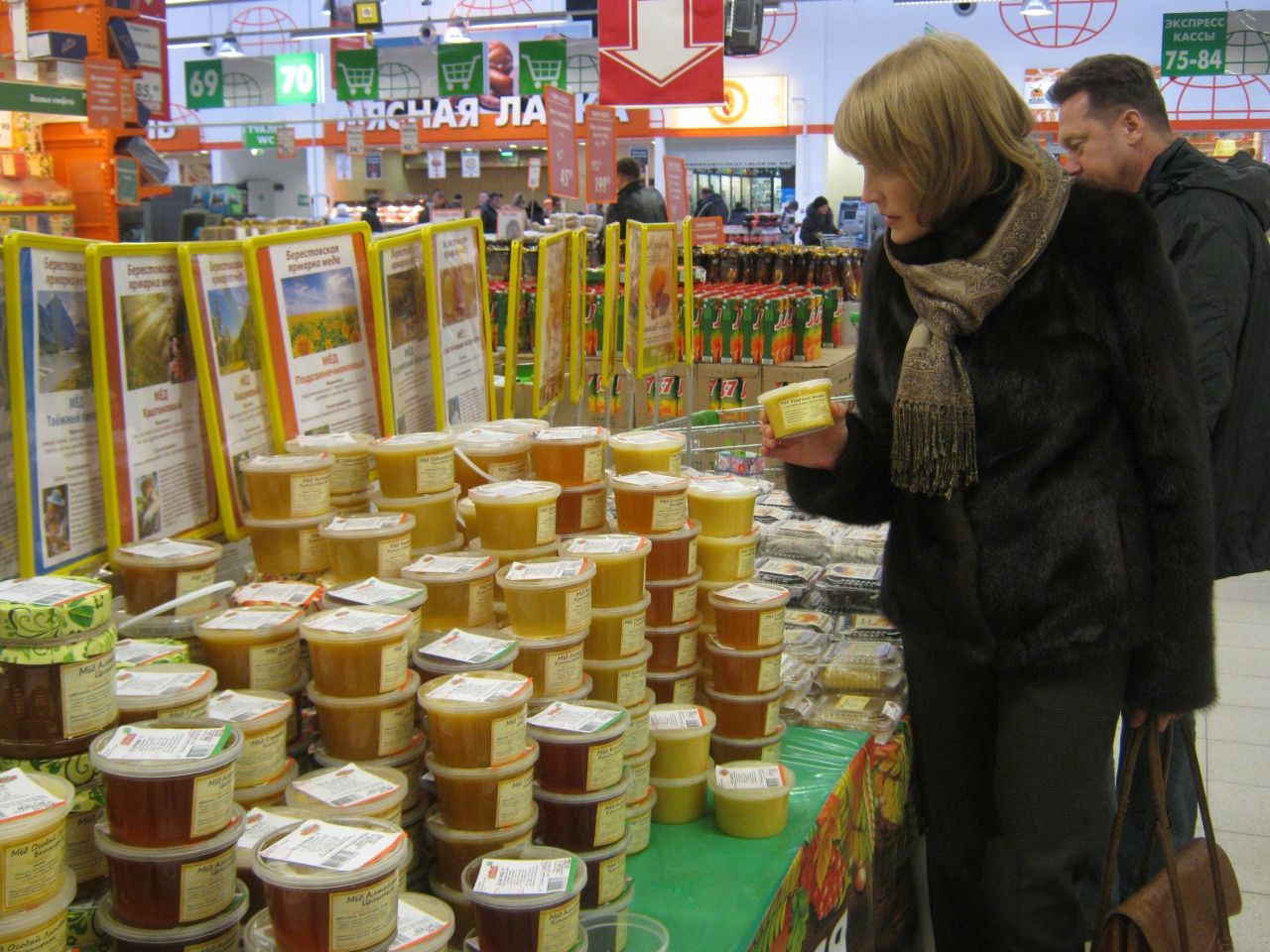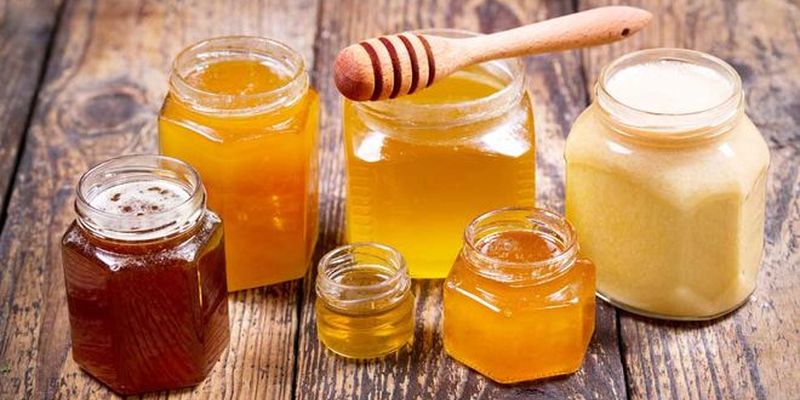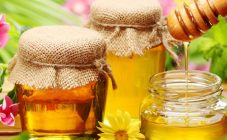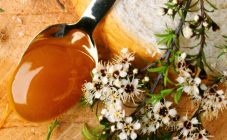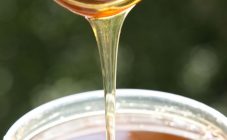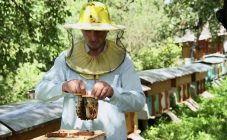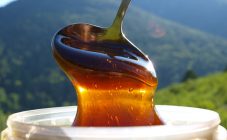Content:
Every beekeeper rejoices at the upcoming honey pumping. The essence of beekeeping, according to many, is honey from an apiary. It is an invaluable gift from bees to humans for their care. Having received the product, the beekeeper faces such a question as the sale of honey.
Honey from the apiary: who buys it
You can profitably create a home business using beekeeping products, having your own, albeit small, apiary. The resulting product is very expensive, practically waste-free, has many useful qualities and long-term storage.
According to statistics, those who buy honey for personal needs try to contact directly with beekeepers, bypassing purveyors and intermediaries. In extreme cases, you can buy honey from regular sellers.
There is a very low demand for honey in shops and supermarkets, since the quality of the products offered is often very questionable.
The sale of honey should be carried out in the places of its greatest demand. In big cities, where people are far from pure natural resources, natural honey is highly valued, and there are a lot of people willing to buy it. You should also pay attention to the needs of residents of the northern regions, where it is quite difficult, if not impossible, to maintain an apiary.
Many people want to buy natural honey here. Although you cannot do without competitors, there will always be a regular customer who has appreciated the products.
There is no oversaturation in the market beekeeping, therefore, if there is a desire and opportunity, you can take the risk of achieving success in this direction. Quite often, beekeepers do not consider honey marketing a serious business, considering the maintenance of an apiary as a hobby. In the slightest cases, failures leave the market and often lose interest in keeping bees, considering it an unprofitable occupation.
It is possible to supply honey, the new harvest of which is packaged in bulk containers, to stores by concluding an agreement with them. This applies mainly to supermarkets, grocery stores; smaller points, such as stalls, small grocery stores, honey is taken in smaller containers, more popular - 500 ml cans.
Goods packaged in souvenir containers are in good demand. The correct marketing ploy is selling honey in a mini container. Small containers (30 ... 50 ml) are bought more willingly, on the label, as information, you need to indicate the variety, collection date, phone number. Having tasted fresh high-quality honey, a potential client often becomes a regular one, and the supply of honey increases in volume.
In order to keep the buyer, it is practiced to attach a small present to each of his significant purchases - a small part of any beekeeping product with instructions for use. After evaluating the quality of honey, the client will also purchase the accompanying goods: pollen, bee bread, beading, pollen.
Where to take honey
Getting enough products from the apiary, you can safely sell the surplus. It is not difficult to find out where honey is taken, and it can be realized in more than one way:
- Direct sale to the consumer;
- Use the services of an intermediary;
- Offer wholesale.
By agreement, honey can be handed over in a large batch to a network of cafes, to confectionery factories. Having prepared copies of the relevant documents and samples, everything is offered to the director. If you are interested in cooperation, you can get an order. Also, a large wholesaler can purchase a reseller.
The supply of honey in small wholesale may be of interest to individuals involved in baking and selling confectionery to order. A domestic manufacturer is more valuable for such people, since imported goods may be of dubious quality.
Selling honey from our own apiary
The work of a beekeeper is not easy, but even more effort will be needed to profitably sell honey from your own apiary. Not just sell, but also get a good price.
At the end of the honey season, the question of sales channels arises, and the most profitable option is to offer honey from a personal apiary to friends using popular word of mouth. Customers who are familiar with the quality of the product quickly spread the word to the rest of the population.
You can also advertise your honey in the region by going to the annual honey fair. Such places are visited by procurers of such enterprises as bakeries, confectionery shops. By offering samples from your apiary, one can hope for an offer of further cooperation.
The best price for honey will be with direct work with the consumer. Sale of honey is possible in local sanatoriums, holiday homes, in yards, at work.
An interesting option for selling beekeeping products using mail. You should be prepared that sent samples will remain without comment, but sometimes you can face a serious buyer.
Before selling honey, you should take the best care of your appearance. The glass container must also look flawless. It is advisable to put cloth napkins on top of the plastic lids, it is better to roll up the cans with lids for preservation.
When buying honey from a beekeeper, the consumer is confident in the naturalness of the product, so he is ready to pay the required amount. In addition, the beekeeper must be able to confidently, clearly and easily present his products, offer related products.
Market value of honey
It is impossible to say exactly how much honey is, since the price is formed, depending on the region. Even in the region itself, the price is constantly changing, depending on factors:
- Demand;
- Product type;
- Number of families;
- Collection volume.
Rare varieties are always more expensive, since their production has difficulties associated with transportation to the place of collection, the amount of honey plants, etc.
The smallest price fluctuations are observed in agricultural markets. The prices of private traders selling their surplus are always unpredictable. If the market, for example, will ask for 1.5 thousand rubles for a three-ruble note of flower honey, then the beekeeper may ask for a similar amount from 1 to 2 thousand rubles. The reasons for this difference are explained in different ways: the last banks, a rare variety, difficulties in keeping, a large harvest.
Due to price fluctuations, many buyers have the opinion that if one seller's price is too low, then the rest should not be too high. Moreover, quite often an indiscriminate client does not pay attention to the fact that honey may be last year's, wrong. Such a rash purchase from one unscrupulous seller casts a shadow on everyone else.
That is why it is extremely important to be able to present and present honey from your apiary correctly.
When to buy
Connoisseurs and lovers of honey prefer to stock up on it in advance. And not in one jar, just 5-10 liters, or even more. Such a sweet tooth knows exactly when it is better to buy honey and from whom.
It is advisable to establish contact with a familiar beekeeper from spring. This will allow:
- Determine the cost;
- Order honey of the required amount;
- Decide on the type of honey;
- Order related product: honeycomb, pollen, wax, propolis.
Also, the beekeeper will inform about the pumping time and delivery. Having established contact with a reliable supplier, you can:
- Avoid resellers who often resort to fraud;
- Get a product of proven quality;
- It is guaranteed to receive healing honey, since competent beekeepers immediately remove honey from the light, in which it loses its properties;
- The beekeeper is ready to deliver the goods home for free.
Selection of natural honey
Buying honey requires care as there are enough dishonest sellers in the market. Instead of high-quality honey, they will easily slip a fake, and even so much praise as if this is the most ideal product.
The most severe fake is herbal syrup. This surrogate is obtained from the evaporated juice of melons mixed with honey of three years of age, which has been melted many times.
Real honey can be distinguished by:
- I smell. It is endowed with a specific aroma, unlike sugar syrups;
- Taste. Slightly cloying and slightly astringent;
- Blossom. Sugar honey is too white in color and a little sediment, while quality honey is rather uniform;
- Consistencies. Rubbing a drop of honey with your fingers and finding nothing, you can determine the naturalness. The fake forms clots, lumps.
There are also a number of ways to distinguish fake honey at home.
When dealing with an apiary, you need to take care not only of receiving a rich bribe, it is equally important to sell your products correctly. It's best to do it yourself.
